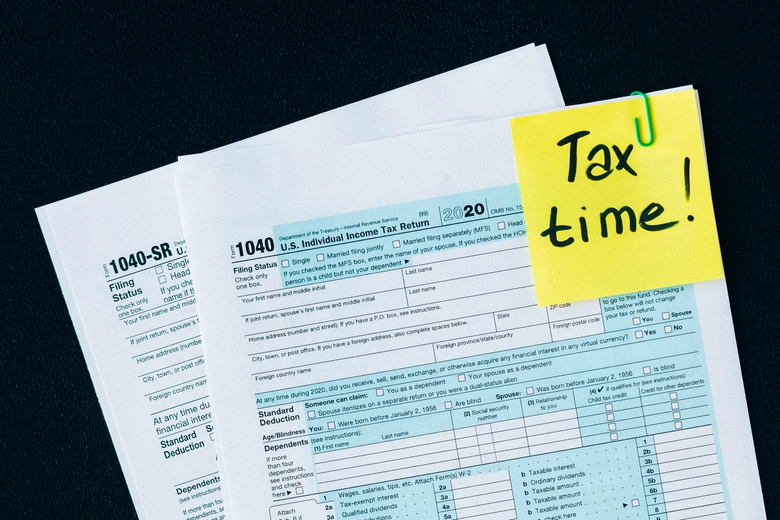5 Keys To Valuing Stock Options
Valuing stock options depends on several factors such as dilution, liquidity, vesting schedules, expiration dates and taxes.
Getting stock options from your employer can sometimes feel like hitting the lottery. But before you buy a Tesla or put a down payment on your dream home, it’s important to take a step back and realistically value those stock options. Because even though some startup employees get lucky and cash stock options in for six figures, the reality is that employee stock options (ESOs) have a wide range in value, and many end up becoming worthless.
In fact, 70% of startups starting from a seed round end up exiting at zero, according to research from Harvard Business School professor Chris Stanton, who analyzed data from Sand Hill Econometrics on more than 10,000 venture-backed companies. The research also finds that even those who have an exit above zero after a seed round often have low valuations.
So rather than getting swept up in the best-case scenario, you should value stock options more objectively to see whether you’re likely getting a good deal. Granted, many unknowns exist when it comes to valuing stock options, and part of it is just waiting and seeing what happens. But, you can get a better picture of what your stock options are worth by focusing on the following five areas.
1) How Might Dilution Affect Your Stock Options?

The first step in valuing stock options is thinking about how dilution could affect any shares you end up owning. An initial offer to purchase, say, 100 shares, might equal 5% of the startup. But, by the time you can exercise your options, maybe those 100 shares are only worth 1% of the startup due to the dilutive effect of additional financing.
A lower equity percentage doesn’t necessarily mean that your options will have a lower value than they do now. Ideally, the company’s value rises with each funding round. However, the point is that you shouldn’t assume you’ll have such a high percentage of whatever you think the company will be worth by the time you can cash in. Suppose you think the company will be worth $1 million by the time you can exercise your options. But instead of having 5%, or $50,000, you might have 1%, or $10,000.
Dilution can also affect share prices, which could then affect your strike price. Suppose you can exercise your options at $100 per share, and the company’s stock price is currently $110. So far, so good. But, if the company started issuing tons of new shares, then the stock price might go down so that the number of shares multiplied by the share price reflects a fair value for the company. So, in theory, too much dilution could put you out of the money.
2) How Liquid Are the Stock Options?
One of the most important factors in valuing stock options is taking liquidity into account. As mentioned, many startups end up going to zero. If you never have a liquidity event, like an acquisition that involves buying out your shares or an initial public offering (IPO), then your stock options could become worthless. But even if you're confident that the company will stay in business and retain value, the level of liquidity can strongly affect how valuable those shares really are.
Suppose you were granted ESOs at an early-stage startup that seem to be worth around $50,000 at present value. But what if you have to wait 10 years until the company goes public so you can sell those shares? Is that really the same as having $50,000 in cash now? Maybe you would take $40,000 more in salary if it meant not having to wait so long to cash in, even if you eventually receive more money via stock options.
At a public company, liquidity is much more apparent. Generally speaking, if you work at a company like Apple or Amazon, you can be confident in your ability to sell your shares on the open market once you exercise your options. So, in that case, a lower dollar amount with readily available liquidity could be worth more than a theoretically higher dollar amount at a startup with illiquid shares.
3) What’s the Vesting Schedule?

Employees should also take vesting schedules into account when valuing stock options.
“Vesting means you have to earn your employee stock options over time. Companies do this to encourage you to stay with them and contribute to the company’s success over many years,” explains Carta, an equity management solutions provider.
So, when thinking about things like liquidity and dilution, you also want to map that onto your vesting schedule. If you have to wait a few years until you can cash in all of your stock options, then you probably can’t assume that the value will be the same as it is today.
Vesting can also make your shares less valuable in the sense that you might not be able to cash them in if you leave before being able to exercise 100% of your options. Suppose a few years into vesting, you still have half of your stock options that you can’t exercise yet. But maybe you get a great new job offer with a much higher salary that you can’t turn down. If that’s the case, then you may have wished you took more compensation in salary at your current job, rather than having those stock options go to waste due to a long vesting schedule.
4) When Is the Expiration Date?

Another important component in valuing stock options is the expiration date.
“Employee stock option plans generally set expiration at 10 years post grant (something you should be able to find buried deep within your employee stock option plan),” explains Wealthfront, an online financial services company. Even for those currently at private companies, “Ten years is a long time and for most employees it’s more than sufficient to take advantage of your stock options,” adds Wealthfront.
Still, try not to make too many assumptions here. Instead, look at both your specific stock options expiration date and your company’s potential exit paths:
- If the options expire in 10 years at a very early-stage startup that you don’t think has a path to liquidity within a decade, then the stock options could become worthless.
- Or, if you have less than 10 years but are at a later-stage company, you need to take into account how long it might take to go public or get bought out.
Even at public companies, it’s useful to think about the expiration date to more accurately value stock options. If you only have one year, for example, an event outside the company’s control, like a stock market crash, could put your options underwater. Yet if you had several years, that could increase the chances for the stock price to rise above your exercise price.
5) What Are the Tax Implications?

Lastly, employees need to consider tax implications when valuing stock options. While you certainly want the value of the company to go up enough for you to profit from your stock options, that can also trigger taxes that cut into your earnings. In other words, don’t assume that you’ll pocket the full difference between the exercise price and the market price. Instead, consider how much tax you’ll have to pay to figure out your true take-home pay.
Depending on the type of ESOs you have, you might have to pay different levels of tax:
Tax treatment with NSOs
The less restrictive type of stock option is a non-qualified stock option (NSO), but when you exercise them, you have to pay income tax on the spread. After exercising, any additional gain you earn from holding and eventually selling the stock would be subject to capital gains tax treatment.
Tax treatment with ISOs
In contrast, incentive stock options (ISOs) have stricter rules but arguably better tax treatment. Generally, if you wait to sell the stocks at least one year and one day after exercising and two years and from when you were granted the stock options, all of the earnings would be subject to long-term capital gains rates, as TurboTax explains. Long-term capital gains rates (15% for many people) tend to fall far below regular income tax rates, especially for high earners.
One other wrinkle is that ISOs are subject to the alternative minimum tax based on the exercise spread. Still, the tax implications of owning ISOs can result in taking home more money than if you were granted NSOs. So, it’s important to understand which type of stock option you have and what types of taxes you may face.
Are You Getting Your Fair Share?

Stock options can be a great addition to your base compensation, but as you can see, a lot of variables are at play when it comes to valuing stock options. What might look like a lot of money at first glance isn’t always the case when you account for factors like dilution, liquidity, vesting schedules, expiration dates and taxes.
Even if you can cash in stock options for a healthy chunk of change, you still might have been better off receiving more of your compensation in salary or cash bonuses. So, before you jump to conclusions, take the time to properly value your stock options, accounting for both the risk and reward that they can bring.
👉 Read next: How to get more from your RSU compensation
The information provided herein is for general informational purposes only and is not intended to provide tax, legal, or investment advice and should not be construed as an offer to sell, a solicitation of an offer to buy, or a recommendation of any security by Candor, its employees and affiliates, or any third-party. Any expressions of opinion or assumptions are for illustrative purposes only and are subject to change without notice. Past performance is not a guarantee of future results and the opinions presented herein should not be viewed as an indicator of future performance. Investing in securities involves risk. Loss of principal is possible.
Third-party data has been obtained from sources we believe to be reliable; however, its accuracy, completeness, or reliability cannot be guaranteed. Candor does not receive compensation to promote or discuss any particular Company; however, Candor, its employees and affiliates, and/or its clients may hold positions in securities of the Companies discussed.
